

At the Medical University of Graz, over 2,500 academic and general staff members and around 4,350 students conduct research, teach and learn with a spirit of innovation for our patients' health and well-being. A center of innovative, cutting-edge medicine in southern Austria, Med Uni Graz provides an attractive workplace and living space and for its staff and students and a significant share of patient care on site. For more information visit the website: https://www.medunigraz.at/en/.
KAGes - The Styrian provincial hospitals and care centers In 10 provincial hospitals at 20 locations and four provincial nursing centres, around 18,200 qualified employees ensure health care and long-term care in Styria. KAGes is one of the largest hospital companies in Europe. For more information visit the website: https://www.kages.at/.
The Hasso Plattner Institute (HPI) in Potsdam is Germany's university center of excellence for digital engineering, advancing research and education in IT systems engineering, data engineering, cyber security, entrepreneurship, and digital health. The focus of HPI’s teaching and research is on the foundations and applications of large, highly complex and networked IT systems. In addition, HPI concentrates on the development and research of user-oriented innovations for all areas of life. For more information visit the website: https://www.hpims.org/.
The Chair "Digital Health - Connected Healthcare" aims to pave the way for transforming healthcare systems from purely managing illness to maintaining wellness. Its interdisciplinary team includes Computer Scientists and Data Scientists with expertise in biomedical research. The central research topic of the group is the collection and analysis of health-relevant data from daily life and clinical contexts. For more information visit the website: https://hpi.de/arnrich.
As one of the world’s foremost medical universities, KI accounts for the single largest share of all academic medical research conducted in Sweden. KI also offers the country’s broadest range of education in medicine and health sciences. For more information visit the website: https://ki.se/en.
The Ribeirão Preto Medical School of the University of São Paulo (FMRP-USP) is a teaching, research, and extension unit of the University of São Paulo focused on the field of medical and health sciences. FMRP-USP is located on the USP Campus in Ribeirão Preto, in the interior of São Paulo, Brazil. Annually, it offers spots for undergraduate courses in Medicine, Biomedical Sciences, Physiotherapy, Speech Therapy, Biomedical Informatics, Nutrition and Metabolism, and Occupational Therapy. Currently, it has 306 teachers, 1370 undergraduate students, and more than 1400 postgraduate students, having graduated 7,687 undergraduate students and granted over 10,300 postgraduate degrees. Along with the School, there is the Ribeirão Preto Medical School Hospital (HCFMRP-USP), which is indispensable for good medical education and daily conducts about 2500 consultations, 60 surgeries, 90 hospitalizations, 6,000 laboratory tests, 2,000 specialized exams, 500 radiological exams, and provides an average of 220 blood transfusions. Recognized as a reference center, the Ribeirão Preto Medical School Hospital hosts high-quality research lines, teaching in medicine, nursing, physiotherapy, nutrition, speech therapy, occupational therapy, and biomedical informatics. For more information visit the website: https://www.fmrp.usp.br/en/.

Prof. Dr.-Ing. Bert Arnrich is the head of the Chair "Digital Health - Connected Healthcare" at the joint Digital-Engineering Faculty of the Hasso Plattner Institute (HPI) and the University of Potsdam. His main area of research is connecting ubiquitous sensing and computing technologies with medical data science. Between 2006 and 2013, he led the research group "Pervasive Healthcare" at the Wearable Computing Lab at ETH Zurich. He received a Marie Curie Fellowship from the European Union and was appointed Assistant Professor at the Computer Engineering Department of Bosphorus University, Istanbul, Turkey, in 2013. He worked as a Science Manager for Emerging Technologies at Accenture Technology Solutions.

Hilton is a postdoctoral fellow at Ribeirão Preto Medical School at University of São Paulo, Medical Imaging, Hematology and Oncology Department.

Max is an MD PhD, Orthopaedic surgeon at Karolinska Institutet, Department of Clinical Sciences, Danderyd Hospital

Stefanie has been working as a data scientist for KAGes since 2017. She finished her PhD in Medical Informatics with the dissertation topic "Performance and User Acceptance of a Machine Learning-Based Delirium Risk Stratification Tool in Clinical Routine".

Stefan has been working as a research assistant at the Chair "Digital Health - Connected Healthcare" since 2022. He finished his master's degree at the Jožef Stefan IPS in Ljubljana, Slovenia, with a master's thesis titled: "Deep transfer learning for human activity recognition using a wrist-worn accelerometer". Currently, he is pursuing a PhD under the supervision of prof. Dr.-Ing. Bert Arnrich.
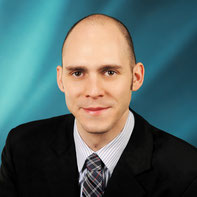
Diether is the Lead Data Scientist at KAGes. He completed studies in social and economic sciences. He is a former researcher at the University of Graz and for the Max Planck Institute for Demographic Research. He also worked as a consultant for the pharmaceutical industry.
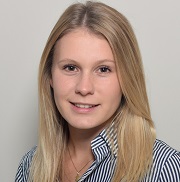
Lena is a research assistant. She completed her Master’s degree in Biomedical Engineering at Graz University of Technology, specializing in Computational Neuroscience and Bioinformatics.

Martin is an MD PhD, Orthopaedic surgeon at Karolinska Institutet, Department of Clinical Sciences, Danderyd Hospital
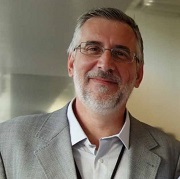
Bachelor's and Master's degrees in Electrical Engineering and PhD in Applied Physics from Universidade de São Paulo (BR). Post-doctorate in computer-aided diagnosis in radiology from the University of Chicago (USA). Associate Professor in Artificial Intelligence in Health at the Department of Medical Imaging, Hematology, and Oncology at the Ribeirão Preto Medical School at the University of São Paulo. Member of the Management Committee of the Center for Artificial Intelligence and Machine Learning (CIAAM) at the University of São Paulo.
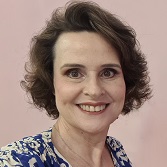
Gladys has a master's degree in computer science at ICMC/USP, having worked as a systems analyst and developer, project manager and development coordinator in a wide variety of areas over a 30-year career.

Peter is an MD PhD, Associate Professor of Medicine at Medical University of Graz (MUG), University Hospital and Heart Center Graz.

Michael is a data scientist and software engineer at KAGes. He finished his master’s degree program “Data and Information Science” at the University of Applied Sciences FH Joanneum with his master’s thesis: “Machine Learning based Risk Prediction for Major Adverse Cardiovascular Events”.
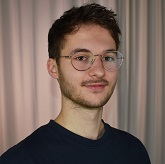
Georg is a master's student in Information and Computer Engineering at Graz University of Technology, specializing in Software Technology. He has practical experience in software development and small-scale artificial intelligence.

Kátia has a master's degree in Computer Science from the Institute of Mathematical and Computer Sciences (ICMC) at USP and a PhD in Medical Sciences from the University of São Paulo. She manages the Center for Development and Continuing Education in Biomedical Informatics (CDFC/IBm) at FMRP-USP and develops projects in the areas of data science, databases and machine learning.
Gerald is a Patient advocate at NÖ-PPA, St. Pölten.
Thomas is the Dean of Artificial Intelligence and Human Health, Co-Director of Hasso Plattner Institute for Digital Health , and Professor at Icahn School of Medicine at Mount Sinai.
Alexander is a Uni-Prof. Dr. at Medical University of Graz (MUG), Clinical Division of Nephrology Graz.
Peter is the chair of SWEDEHEART steering group.
Andreas is a Uni-Prof. Dr. at Medical University of Graz (MUG), University Hospital and Heart Center Graz.